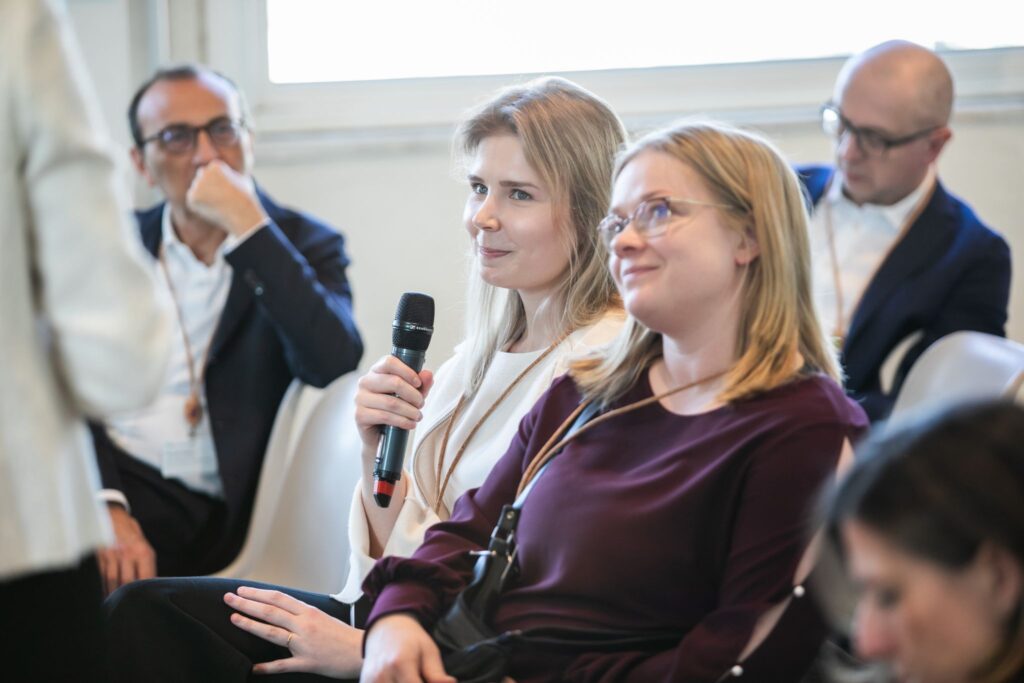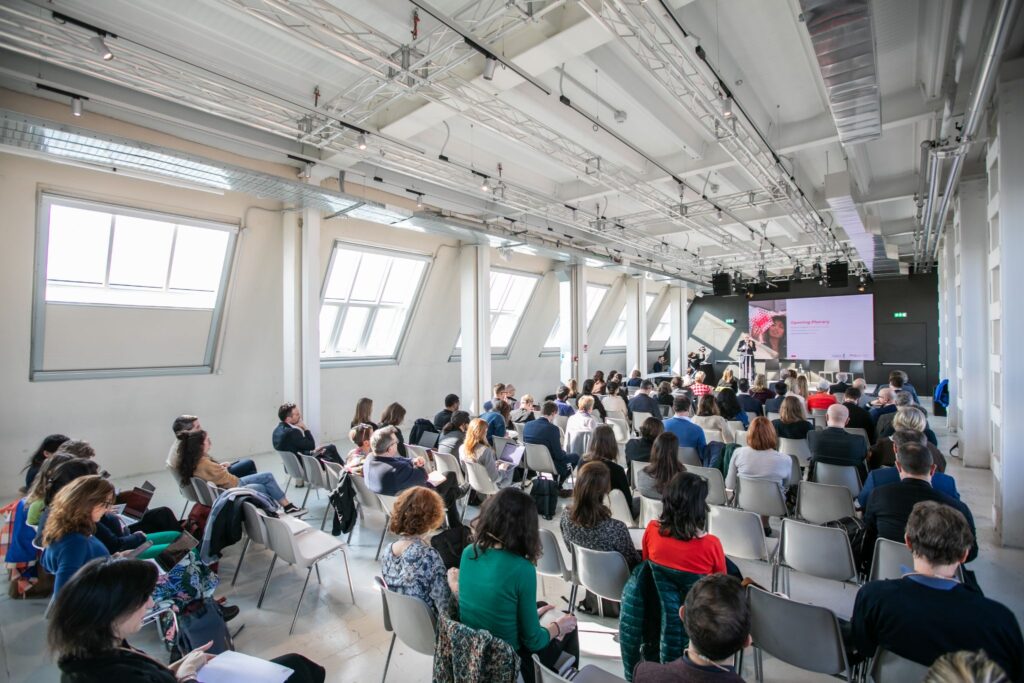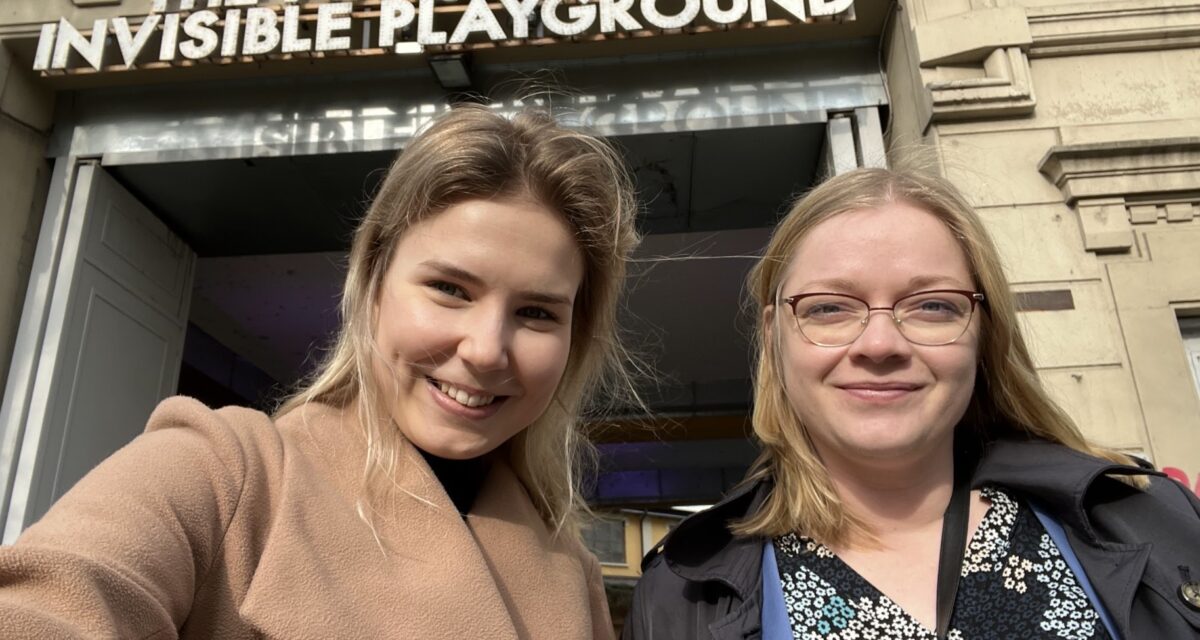The role of foundations in scaling impactful innovation is often overlooked. Beyond grantmaking, they can act as crucial bridge builders between different societal sectors. Insights from Milan reveal untapped potential in philanthropy for driving innovation at scale, with the most ambitious actors ready to take the lead.
As part of TAH Foundation’s catalysing work in emissions reductions, TAH Foundation is working on scaling climate finance for early-stage climate innovations in Finland. The aim is to develop new ways for effective participation for foundations and other funding actors in scaling up climate solutions.
To avoid reinventing the wheel, the TAH Foundation’s Minna Vares and Auli Nikkilä took part in Philea’s (Philantropy Europe Association) Research Forum 2024 – “Breaking bad (habits) – How can foundations move from siloes to shaping future innovation ecosystems?”. The event brought together a multitude of different actors in the European philanthropic sector focusing on the same question: how can foundations catalyse more impact through innovations and take risks that other financiers are not able to take on.
“Innovation is like a truffle”
The discussions were thought-provoking and reflected the broad range of participants. Some of the attending foundations were founded already in the 1500s (Fondazione Compagnia di San Paolo, since 1563) as opposed to more recent actors, like TAH Foundation celebrating its 10-year anniversary this year. Equally diverse was the range in terms of available resources. Regardless of these differences, the consensus was clear at the event: foundations have a significant role in supporting innovation ecosystems and enabling impact.
Calling for transparency and connectedness among foundations
Among many esteemed and reputable speakers at the event, professor Alberto Sangiovanni-Vincentelli shared an especially interesting keynote. Sangiovanni-Vincentelli has spent the last 15 years in Silicon Valley working with flourishing innovations and currently acts as a professor in the University of California, Berkeley. He has also founded two electronic design automation companies with combined market capitalizations of over USD 160 billion.
In his presentation, he emphasised that innovation cannot be cultivated or planned, as it rather happens where the innovation ecosystem exists, created from the connection between institutions. “Innovation is like a truffle” he explained his thinking: truffles, like innovations, cannot be cultivated, but rather emerge naturally when the right conditions are met.
In order for innovations to flourish, the surrounding ecosystem needs to be open and transparent. The importance of sharing experiences, good and bad, is of utmost importance when it comes to enabling innovations to thrive. This is something we keenly agreed with in the discussions, pleading for more openness and knowledge sharing between European philanthropic actors.

One of the key messages of the event was the ability of foundations to build bridges between institutions working in unnecessary silos. Academia, innovation hubs, large corporations, different financiers and the public sector could all benefit from more openness and communication amongst each other, which foundations can accommodate by bringing people together and facilitating discussions.
There are some 186,000 registered foundations in Europe with total assets of some EUR 648bn reflecting about 5% of European GDP.
On the other hand, foundations can also experience silos themselves between grantmaking and asset management. Such disconnections have been identified by many foundations and are yet to be solved in order to enhance impact.
Strong bridges are rarely built alone and thereby partnering up with like-minded foundations, financiers and other actors should be encouraged by foundations. There are some 186,000 registered foundations in Europe with total assets of some EUR 648bn reflecting about 5% of European GDP. Such amounts are far from insignificant.

The role of foundations in scaling climate innovations?
The event acted as a great platform for gathering different views and perspectives as to the role and positioning of foundations. As opposed to what many might think, many foundations in reality do much more than purely support fundamental research which however continues to be important.
Foundations are also able to convene people, deploy catalytic grants, share expertise, mobilise further financing to innovations, build ecosystems and lastly, take risks that other financiers are not able to take on. Foundations’ role as patient value-driven financiers is a crucial part of the innovation ecosystems especially in terms of driving impact.

Many proposals were brought forward during the event in relation to further development of the work of foundations. The common, overarching theme however was to cooperate, share knowledge and experiences, and when possible, partner up with like-minded foundations and other actors to achieve greater impact.
This approach is something TAH Foundation’s newest team member, a Climate Finance Specialist Auli Nikkilä will be looking into as a part of a EU Funded project Accelerating Climate Efforts and Low-Carbon Investments in Finland (ACE). In the ACE project, TAH Foundation together with the project partners and other stakeholders will be further developing the Finnish climate finance ecosystem from research to commercialisation to enable faster scaling of critical climate innovations.
In this respect, Philea’s Research Forum 2024 was an excellent and inspiring kick-start to the work ahead.


